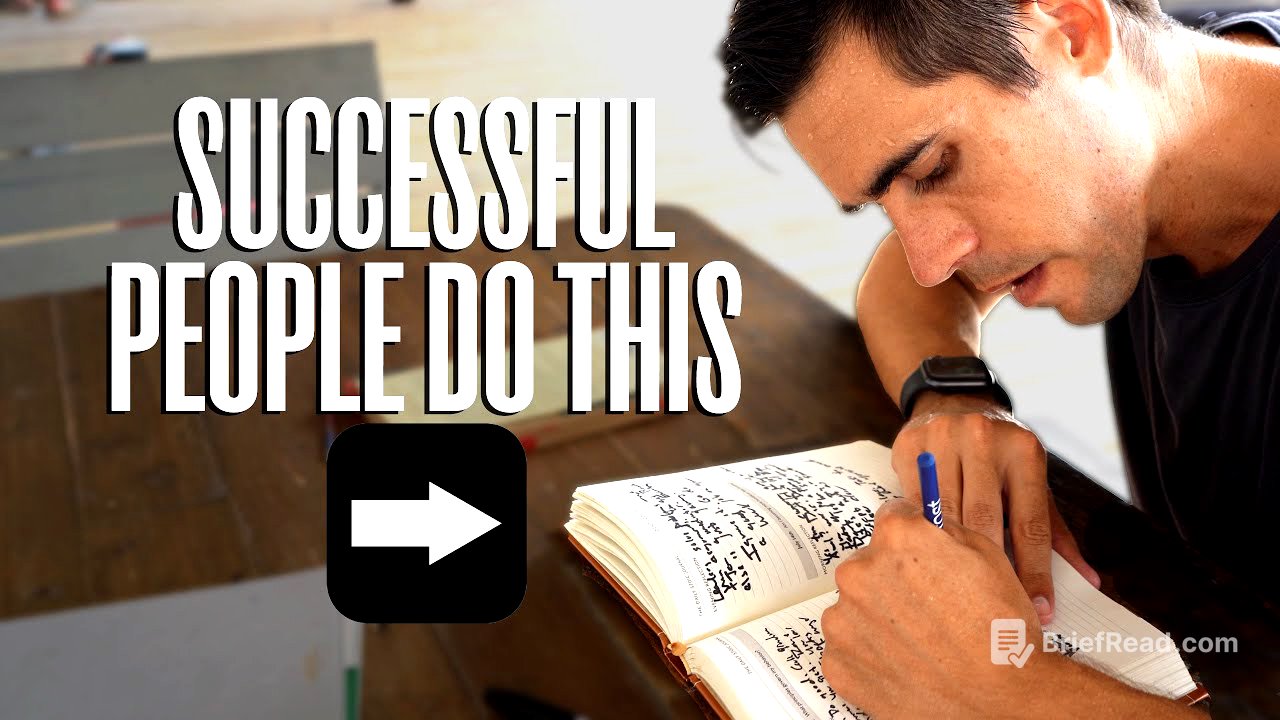TLDR;
This video explores the benefits of journaling, particularly through a Stoic lens. It emphasizes the importance of starting simple, using physical journals, writing for oneself, and using journaling as a tool to process thoughts and engage in self-dialogue. The speaker shares personal experiences and historical examples to illustrate how journaling can be a valuable practice for everyone.
- Start journaling without overthinking the process or tools.
- Use a physical journal to disconnect from digital devices.
- Write for yourself, not for an audience.
- Journaling helps to externalize and process thoughts.
- Engage in a dialogue with yourself through journaling.
Intro [0:00]
The speaker introduces his journaling routine, which is a long-standing habit that has become an integral part of his life. He mentions his journey with Stoic philosophy and how journaling is inseparable from it. He also references his daily Stoic Journal, which provides daily prompts for reflection. The speaker aims to share secrets to help viewers get the most out of their journaling practice, drawing from his own experiences and the practices of creative individuals, leaders, and philosophers.
Just start [2:10]
The first lesson about journaling is to simply begin without worrying about the details. The speaker suggests starting small, such as writing one sentence a day, to build the habit and momentum. He recommends using tools like the "One Line a Day" journal or the "Daily Stoic Journal" to provide prompts and structure. The idea is to make journaling a consistent practice, even if it starts with logging workouts, reading, or food intake.
Use a physical journal [3:32]
The speaker emphasizes the importance of using a physical journal over digital methods. He shares an anecdote about Steve Jobs' inability to retrieve old digital files, contrasting it with the accessibility of Leonardo da Vinci's centuries-old journals. Writing on physical paper allows for a disconnection from devices and ensures that your thoughts remain accessible and legible for years to come.
Write for yourself [4:39]
The speaker highlights that journaling should be a personal and ongoing engagement with ideas. Drawing from Epictetus, he emphasizes the importance of writing, reading, and discussing thoughts to internalize them. He notes that Marcus Aurelius wrote for himself, not for an audience, and that journaling is a tool for personal reflection and growth. The speaker also mentions that journaling is like a weapon, something that is there for you.
Get it out of your head [6:04]
The speaker uses Anne Frank's diary as an example of how journaling can be a patient and forgiving outlet for thoughts. He suggests using the page to express thoughts instead of burdening others. Writing down thoughts creates distance and allows for a clearer perspective, helping to identify and discard negative or unwanted ideas.
Have dialogue with yourself [7:18]
The speaker explains that philosophy is an active practice and a dialogue with oneself. He references Marcus Aurelius's "Meditations" as a personal journal not intended for publication. He also mentions John F. Kennedy's notes and doodles during the Cuban Missile Crisis as examples of working through thoughts and ideas in a low-stakes environment. The speaker suggests that journaling, doodling, or sketching can serve as "spiritual windshield wipers," helping to clear the mind and manage stress.









